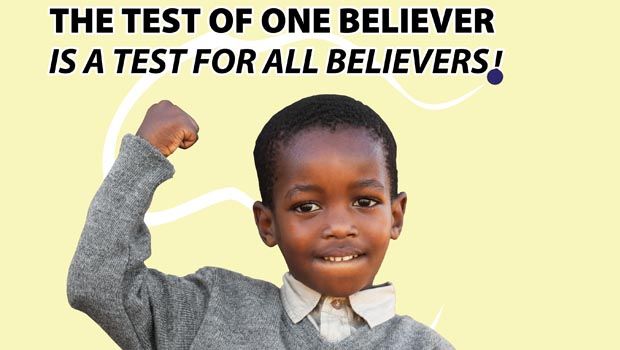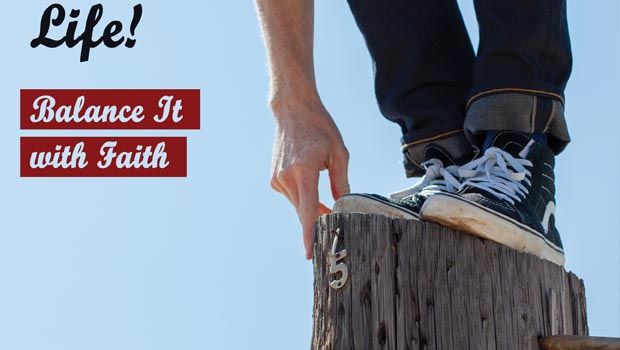“And what is there to life if a man cannot hear the lonely cry of a whippoorwill or the arguments of the frogs around a pond at night. I am a red man and do not understand. The Indian prefers the soft sound of the wind darting over the face of the pond, and the smell of the wind itself, cleansed by a midday rain or scented with the pinyon pine. This we know — the earth does not belong to man but man belongs to the earth. All things are connected like the blood which unites one family. All things are connected. Whatever befalls the earth befalls the sons and daughters of the earth. Man did not weave the web of life; he is merely a strand in it. Whatever he does to the web, he does to himself.”
Man did not weave the web of life and death and suffering and relief. But he has capacity to act so as to increase the wellsprings of living in goodness, peace, and contentment; and to diminish the suffering
These eloquent words are commonly attributed to Chief Seattle (an Anglicization of Si’ahl) in an 1854 speech to his tribe. He was chief of the Duwamish, the Native American Indian people of the western part of Washington State. It turns out that the words were actually penned in 1972 by screenwriter Ted Perry as a fictional account of Si’ahl’s speech, for a documentary about the environment. The words, nonetheless, describe the reciprocity with the natural world that man must respect and abide by. The native American Indians, like so many other cultures of the past, lived within parameters that sought not to exploit nature but to work with nature so that the give and take of sustainable existence is observed and fulfilled. As Francis Bacon, 17th century scientist said, “Nature, to be commanded, must be obeyed.”
That interconnectedness of all life upon the earth, “the web of life,” is remarkably mirrored in modern technologies of communication. That the internet is called the “worldwide web” is no misnaming. We are all wired into a global intelligence network, an information processing system that has been called the “global brain.” Some observers have likened webpages to neurons in the brain and hyperlinks to synapses. Is this modern phenomenon an outward sign of something fundamental to the human condition? Is this interconnectedness a defining quality of our humanity?
Tawhid: The Integrating Principle
For Muslims, the fundamental and integrating principle of belief is tawhid. The first meaning of this is the oneness of God, without partner, the single creator and ruler of the universe. What follows is a well-ordered and harmonious creation whose objects and phenomena derive from the one source, a divine maker and designer of not only the material world but also the physical and social laws that govern all existence and relationships, weaving created things together in a “web of life.” In this coherent schema of existence, the oneness of God imports the unity and brotherhood of humankind, and this is confirmed in the Qur’an: “Mankind was one single nation, and Allah sent Messengers with glad tidings and warnings…” (2:213), and “O humankind! We created you from a single (pair) of a male and a female, and made you into nations and tribes, that you may know one another…” (49:13). Then the more intimate ties of family and marriage are ordained: “It is He Who has created man from water: then has He established relationships of lineage and marriage…” (25:54).
Their test of hunger or thirst or calamity or abandonment or loss is our test — will we answer their need?
The integrating principle of tawhid also holds important implications for economic policy and practice. Since we are all provided for by Allah SWT — “How many are the creatures that carry not their own sustenance? It is Allah who feeds them and you, for He hears and knows [all things]” (Qur’an 29:60) — the wealth that an individual acquires is his to use but is not to be hoarded or used in immoral or exploitive ways. And there are rights upon that wealth owed to orphans, widows, the hungry, and the underprivileged. All economic activity, industry, business transactions, production and distribution, buying and selling – all are undertaken within a moral context and with the underlying goal of maintaining, safeguarding, and promoting social justice and collective well-being.
The society as a whole is ennobled by this social contract, one which demands that those who are disadvantaged and/or deprived of basic necessities be cared for by those who are able to provide. Prophet Muhammad (pbuh) said, “The highest level of the intellect, after eman, is to be of service to the creation.” And this service is to be sincere, a natural expression of genuine faith: “Have you seen the one who denies the Judgment? That is he who pushes the orphan aside and does not promote feeding the poor. Woe, then, unto those who pray, but are neglectful of their prayers, those who would be seen [in worship] but refuse to share necessities of life with others” (Quran 107:1-7). Additionally, circumstance of misfortune can happen to any person at any time. When the hurricane rips through a town and homes are destroyed, when drought sears the crops and diminishes the food supply, when economies falter and unemployment soars – each person affected is tested by God. Will he maintain his faith, will she keep her hope alive, will they thank God for whatever bounties and mercies, however small, are granted?
Being Tested in this Life
Each person faces such tests in this life. And many, if not most, feel empathy that moves them to donate to relief causes after a humanitarian crisis in war-torn regions, or following an earthquake or other natural disaster, or to bring food supplies to areas afflicted by famine or water to drought victims. We feel empathy and remember that helping others is a virtue, enjoined upon us by Islamic teachings. Thus, we feel good about any contribution of money, time, or other resource to help others, to donate charitably to good causes, to support relief efforts. But we don’t often think in terms of this principle: The test of one believer is a test for all believers; and by extension, the test of one human being is a test for all human beings. But when we learn of some hardship a person, a family, or a community is suffering, sometimes the inner dialogue goes something like this: “Oh, those poor people, that is so horrible. O Allah, please help them, bring them relief, provide them with what they need to recover from this…and I’ll do my part and contribute…O thank God that wasn’t me!…my hardships are bad enough!…” Those private thoughts are natural to the human condition. But we need to remind ourselves again and again that humanity is interconnected; and even more thoroughly, the ummah is as integrally joined as interlaced fingers. The Prophet said, “A faithful believer to a faithful believer is like the bricks of a wall, enforcing each other.” While (saying that) the Prophet clasped his hands, by interlacing his fingers (Bukhari).
The natural world offers us much food for thought and a trove of insights. Geese provide a good lesson in solidarity of purpose, in moving toward a common goal, sharing responsibility, motivating and encouraging one another, and taking care of those who stumble along the way. When migrating, these large waterbirds fly in a “V” formation and the flapping of wings by each bird creates an updraft for the bird behind it. The “V” formation adds roughly 70 percent greater flying range than if each bird flew on its own. When a goose falls out of formation, it suddenly feels the drag and quickly gets back into formation to take advantage of the lifting power of the bird in front. When the head goose gets fatigued, it moves back in the formation and another goose takes the lead. Geese honk from behind to encourage those up front to keep up their speed. When one goose gets sick or weak or wounded and falls out of the formation, two other geese follow that goose down to the ground and stay with the afflicted goose until it is able to fly again or until it dies; and only then do they return to the sky to try and catch up with their group. In “V” formation, the geese become almost like a macro-organism. This is a cooperative synergy where hazard experienced by one part brings immediate response from other parts.
The Solidarity of the Ummah and One Human Family
The ummah is no less a cooperative synergy. The Prophet, peace be upon him, said, “The believers, in their mutual love, mercy and compassion, are like one body: if one organ complained, the rest of the body develops a fever” (Bukhari and Muslim). The Prophet also said about fellowship: “None of you truly believes until he loves for his brother what he loves for himself” (Bukhari and Muslim). And further, “He who relieves a hardship of this dunya (earthly life) for a believer, Allah will relieve a hardship of the Day of Resurrection for him…” (Sahih Muslim).
Being neighborly, kind, just — benevolent in every conceivable way — applies just as much to relations with all humanity. The Prophet said, “The person who gives some relief to a widow or the poor or the needy is like the one who makes efforts in the path of Allah.” The narrator then said, “I think the Prophet also said: ‘That person is like that person who is awake in the night [praying] and does not tire, or like the person who fasts continuously’” (Bukhari and Muslim). And in another hadith: “Allah is benevolent to that person who treats others with benevolence” (Sunan Abu Dawood).
So when we see or know of someone who is suffering or enduring hardship, we recognize that he is being tested. “Be sure We shall test you with something of fear and hunger, some loss in goods, lives and the fruits [of your toil]; but give glad tidings to those who patiently persevere. Those who, when misfortune strikes them, say: ‘Indeed we belong to Allah and to Him is our return.’ Those are the ones upon whom are blessings and mercy from their Lord and it is those who are rightly guided” (Qur’an 2: 155). And then we remind ourselves that their suffering is a test for us as well. The Prophet peace be upon him, said:
Verily, Allah, the Exalted and Glorious, would say on the Day of Resurrection: ‘O son of Adam, I was sick but you did not visit Me.’ He [the one being questioned on the Day of Judgment] would say: ‘O my Lord, how could I visit You as You are the Lord of the worlds?’ Thereupon He [SWT] would say: ‘Didn’t you know that such-and-such servant of Mine was sick but you did not visit him and were you not aware of this, that if you had visited him, you would have found Me by him?’ [The Lord would continue]: ‘O son of Adam, I asked food from you but you did not feed Me.’ He [the man] would say: ‘My Lord, how could I feed You as You are the Lord of the worlds?’ He [SWT]said: ‘Didn’t you know that such-and-such servant of Mine asked food from you but you did not feed him, and were you not aware that if you had fed him you would have found him by My side?’ [The Lord would continue]: ‘O son of Adam, I asked drink from you but you did not provide Me.’ He [the man] would say: ‘My Lord, how could I provide You as You are the Lord of the worlds?’ Thereupon He [SWT] would say: ‘Such-and-such servant of Mine asked you for a drink but you did not provide him, and had you provided him drink you would have found him near Me?’ (Muslim).
The web of life that interconnects all human beings, and interfaces all life upon the planet in an ecological homeostasis, is a profound weave that encompasses everything from the microscopic material world to the realm of galaxies, billions of them (!) that comprise the universe. Then there is the ultimate connection — that of the created world to its Creator. We know from the following verse that Allah is not a remote Creator and Lord: “We verily created man and We know what his soul whispers to him, and We are nearer to him than his jugular vein” (Qur’an 50:16). And the Prophet, pbuh, said, “Be mindful of Allah, and you’ll find Him before you” (Tirmidhi and others). This nearness is expressed by Yahya ibn al-Mu’adh al-Razi, “He who knows himself, knows his Lord.” But we can also draw close to our Lord as stipulated in the above hadith. When we visit the sick, we will find Him by the ill person’s side. When we feed the hungry or provide drink to the thirsty; when we sponsor the orphan who cries alone at night; when we attend to the needs of the widow —we find Him by those who are suffering and in need of help. In fact, the imperative responsibility to respond to the needy is made clear by recognizing that in a very real sense it is Allah SWT Who is calling us, on their behalf, to provide the food, the drink, the comfort to the sick, the relief to the victims of disaster. Their test of hunger or thirst or calamity or abandonment or loss is our test — will we answer their need?
Responsibility to Others
The Native American view of life and man’s relation to it is represented by the words imputed fictionally to Chief Si’ahl: “All things are connected like the blood which unites one family. All things are connected. Whatever befalls the earth, befalls the sons and daughters of the earth. Man did not weave the web of life, he is merely a strand in it. Whatever he does to the web, he does to himself.”
Those are wise words that are consonant with Islamic teachings about man’s stewardship of the earth. And we can add something to it to express man’s responsibility to his fellow man: “All things are connected like the blood which unites one family. Whatever befalls one individual – impacts all others. Man did not weave the web of life and death and suffering and relief. But he has capacity to act so as to increase the wellsprings of living in goodness, peace, and contentment; and to diminish the suffering he finds before him as well as that which is out of view. Whatever he does to weave strands of benevolence into the web of life, he does to the betterment of his own soul and to the furtherance of well-being for all.
Let it be said again and again: The test of one believer is a test for all believers. Integrate it into our souls so that on that Day of Sorting Out, the Lord will say that such-and-such servant of His asked, and we responded, and we did so with full awareness of our responsibility, and with yearning to partake of the light when we find the Lord by his side.
According to Ibn Abbas, may Allah be pleased with him, Prophet David, God bless him and give him peace, said in his prayer, “My God, who inhabits Your House? And from whom do You accept the prayer?” Allah SWT answered him by inspiration, “David, he who inhabits My House and he whose prayer I accept is none but he who is humble before My Majesty, spends his days in remembrance of Me and keeps his passions in check for My sake; gives food to the hungry and shelter to the stranger, and treats the afflicted with compassion; his light shines like the sun in the sky…”






